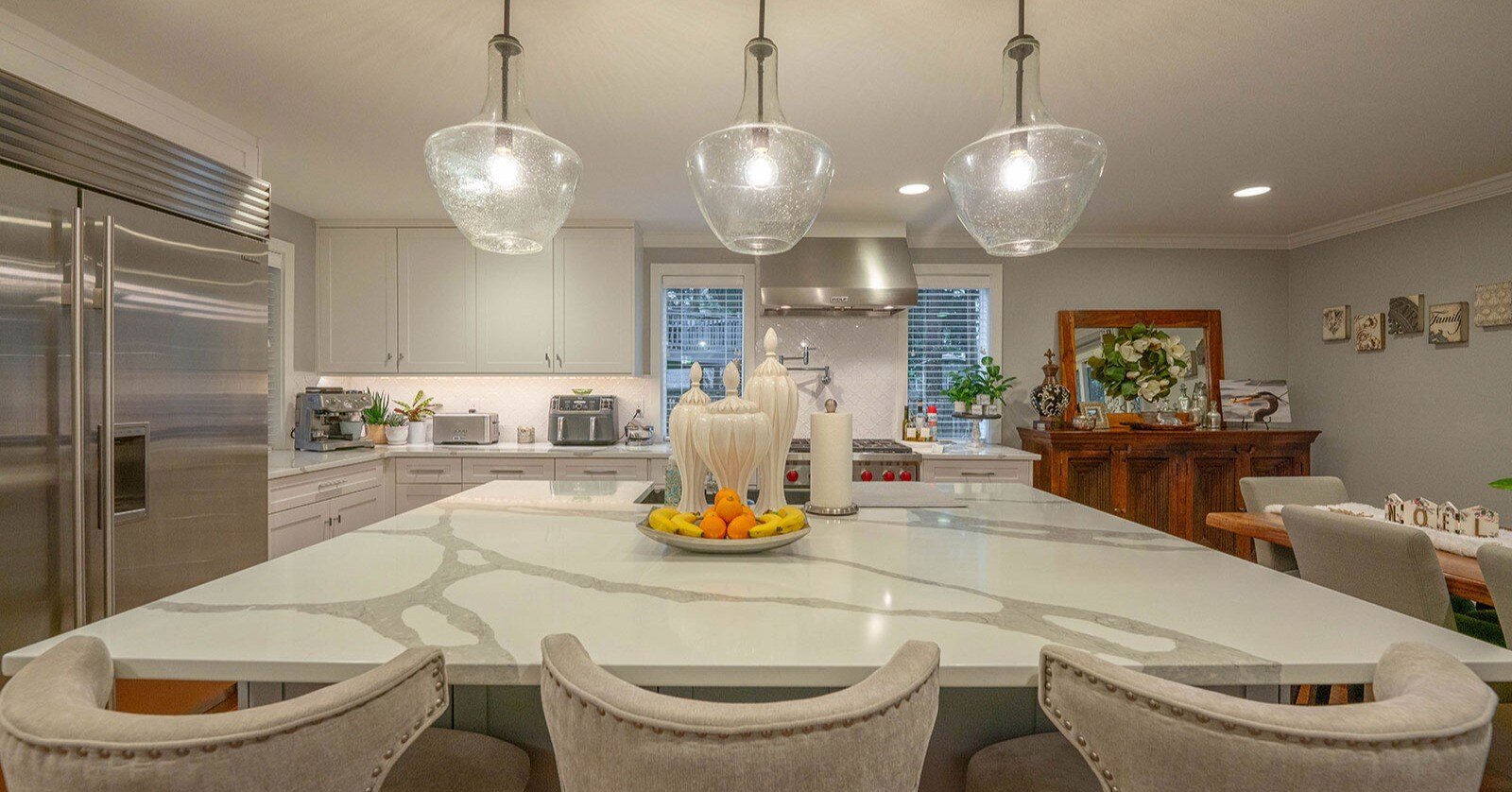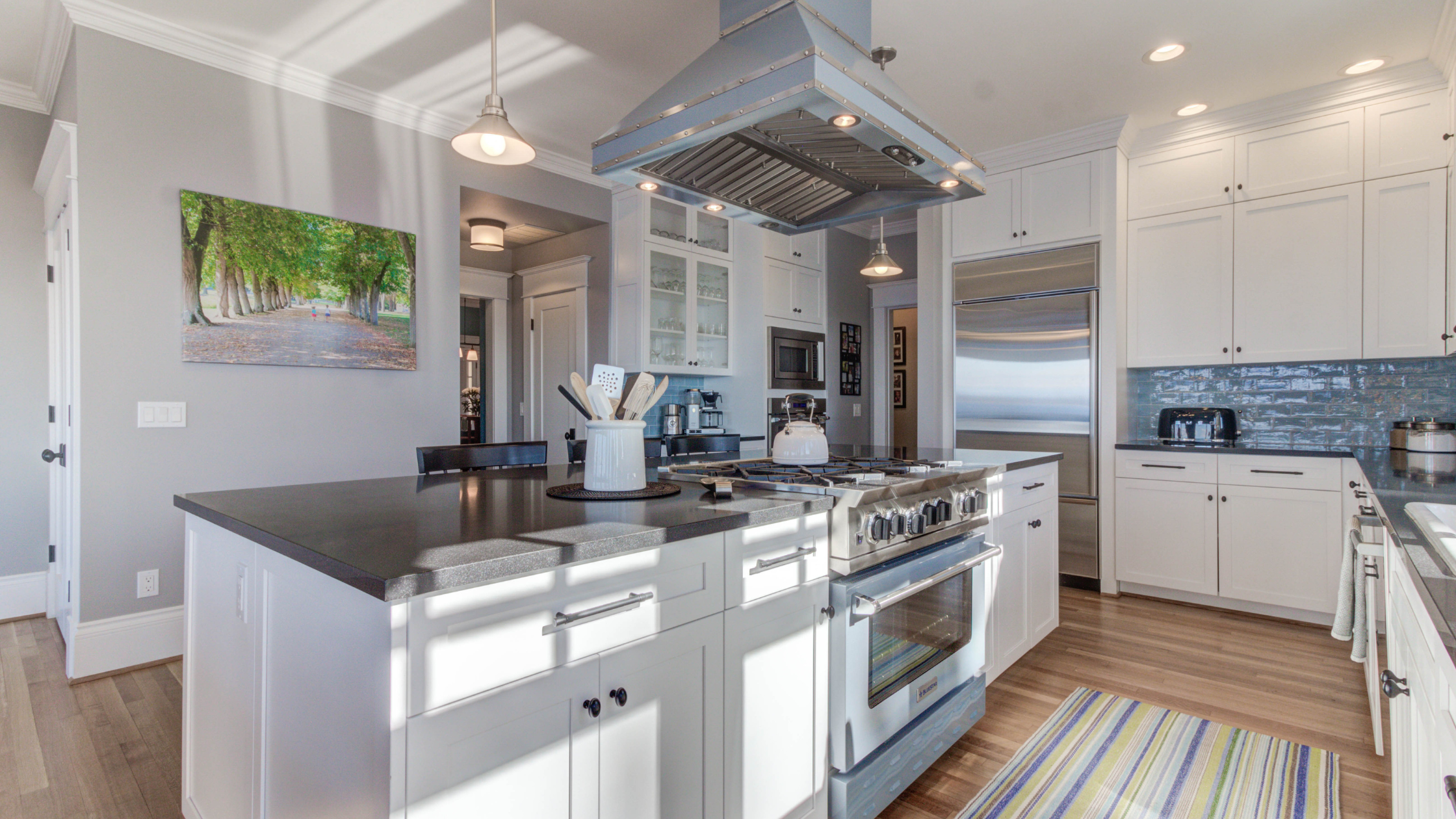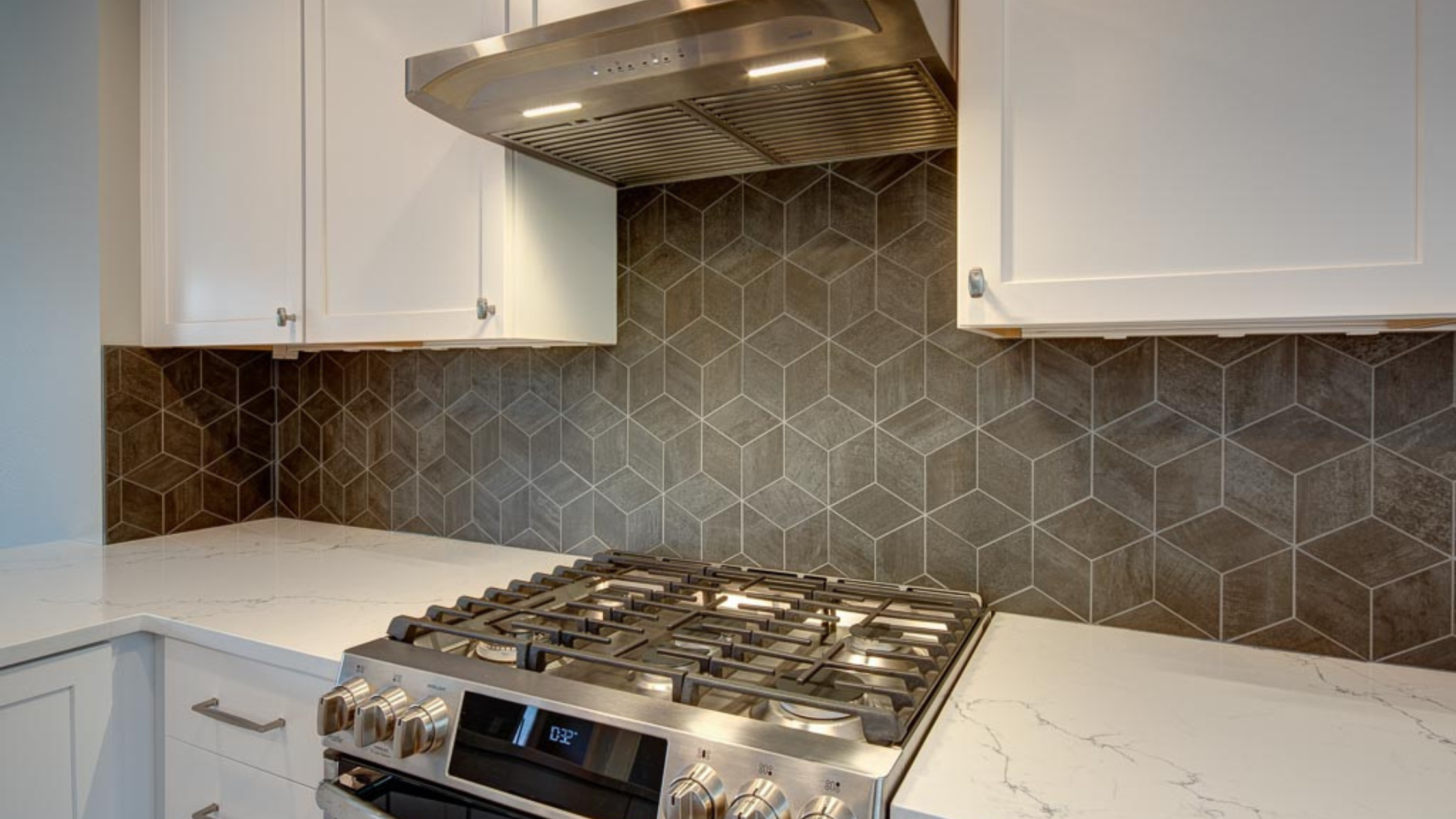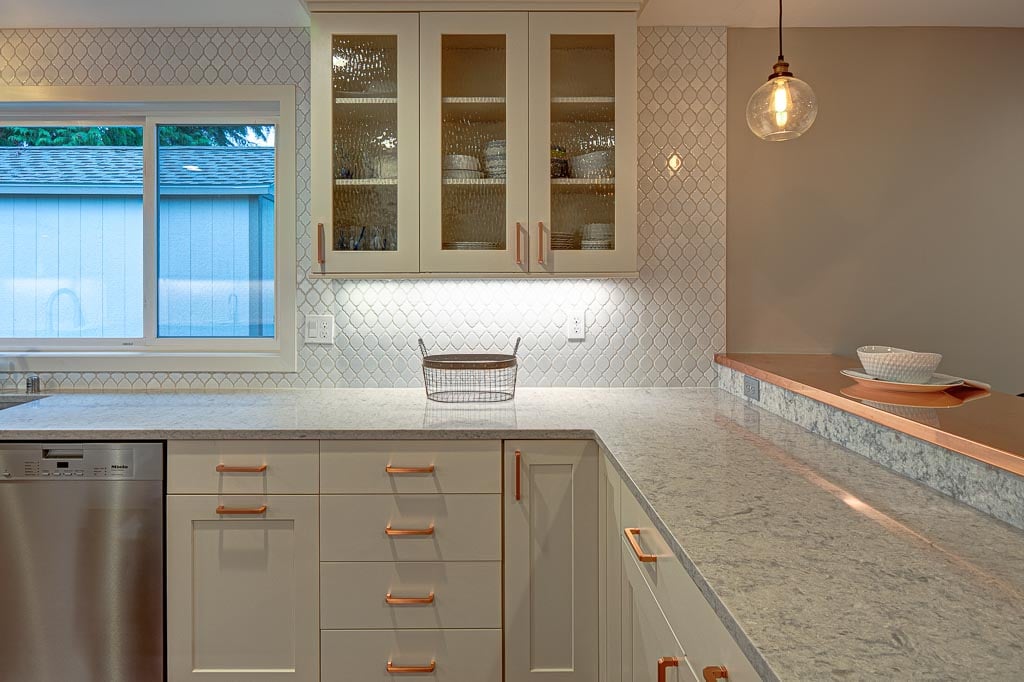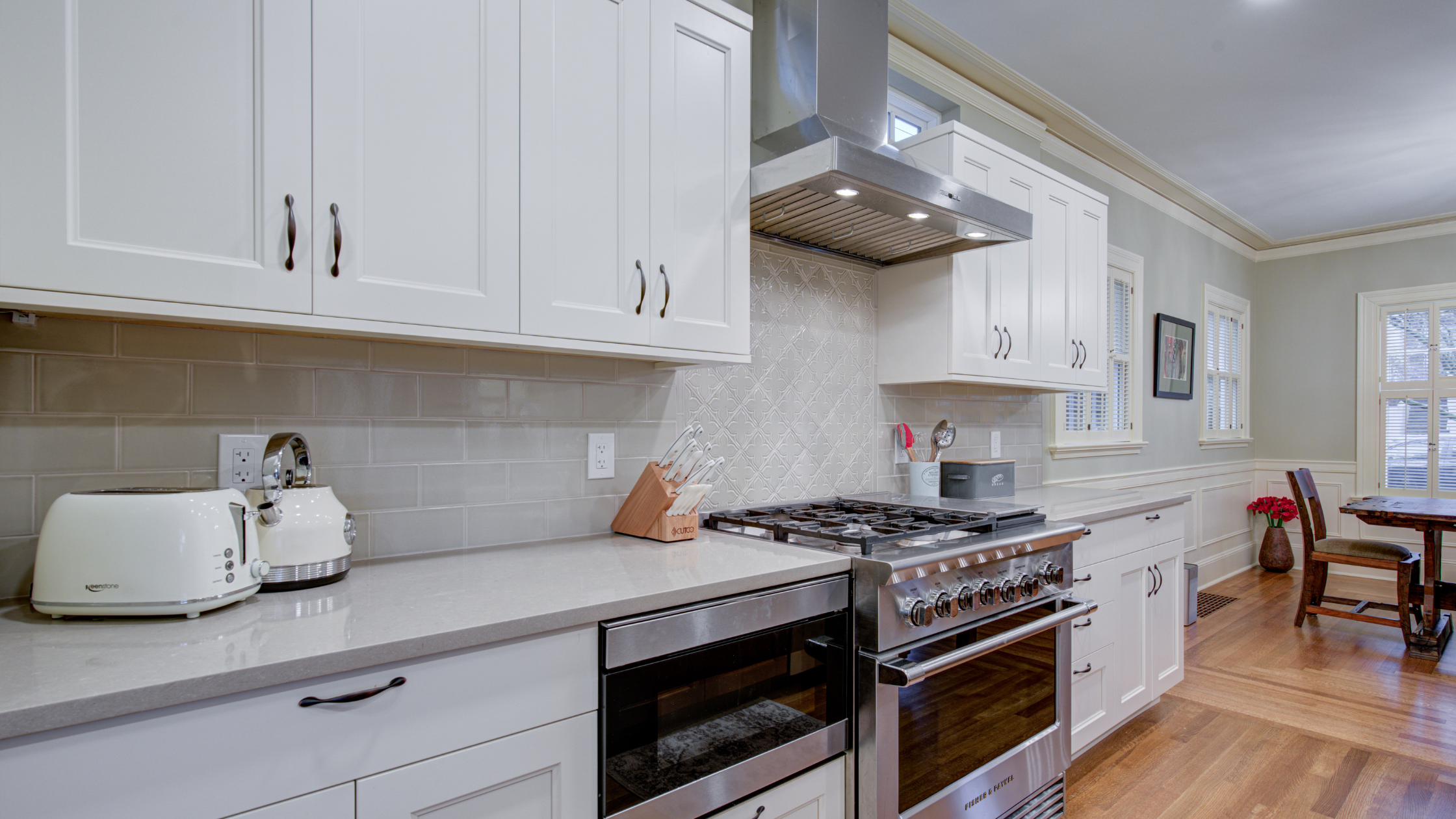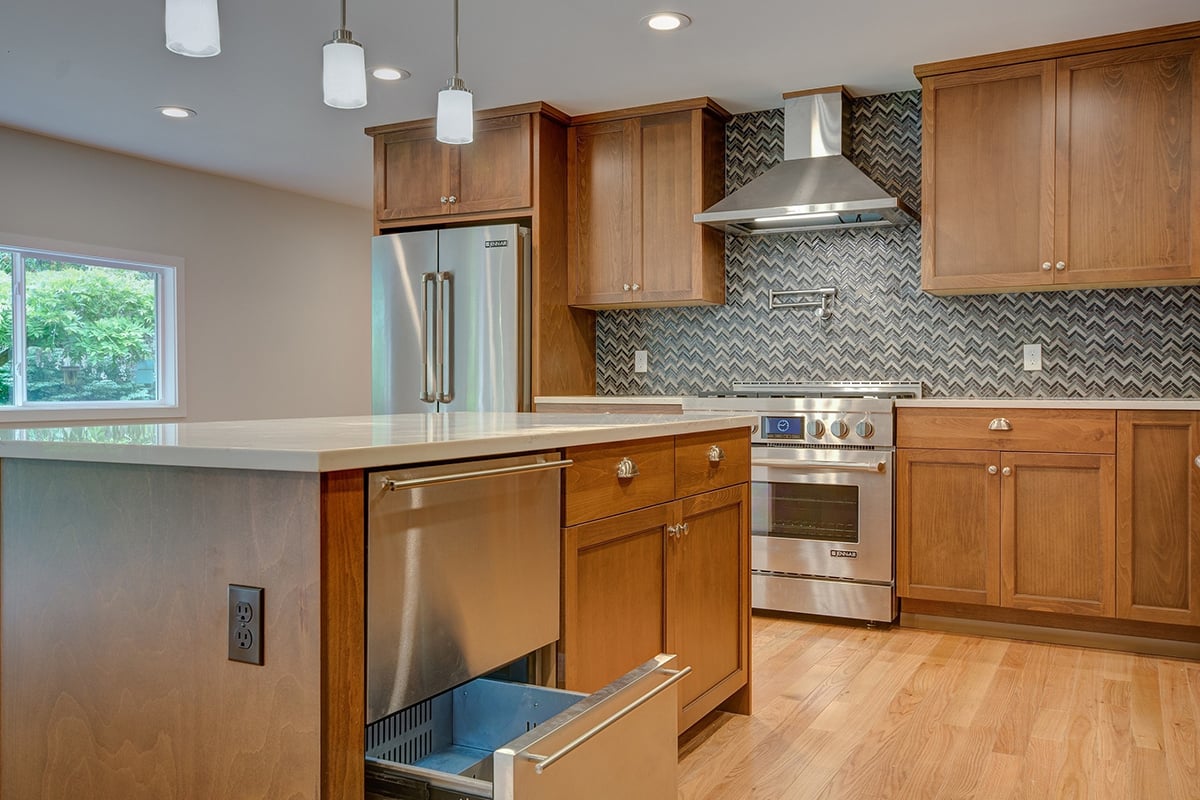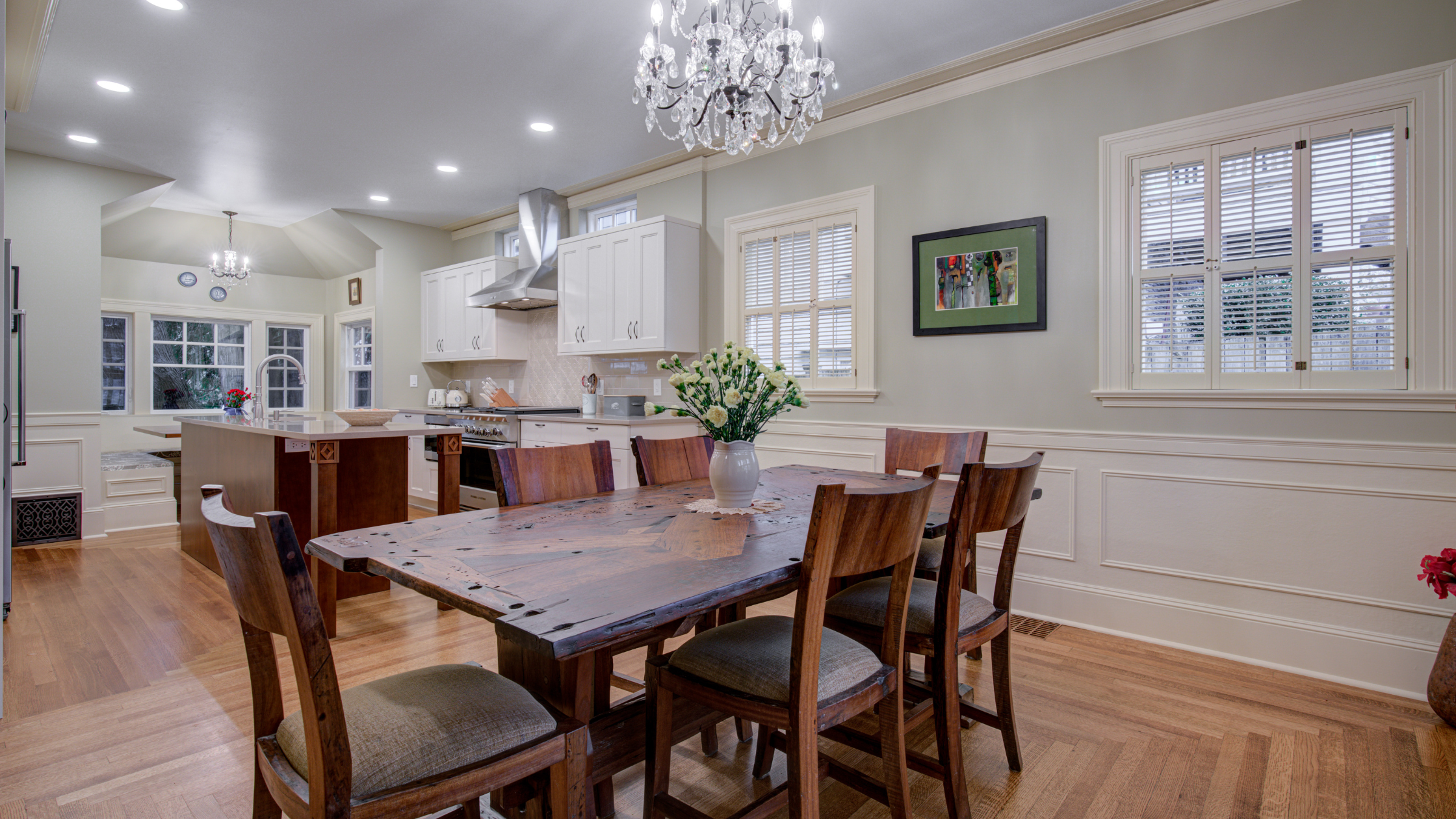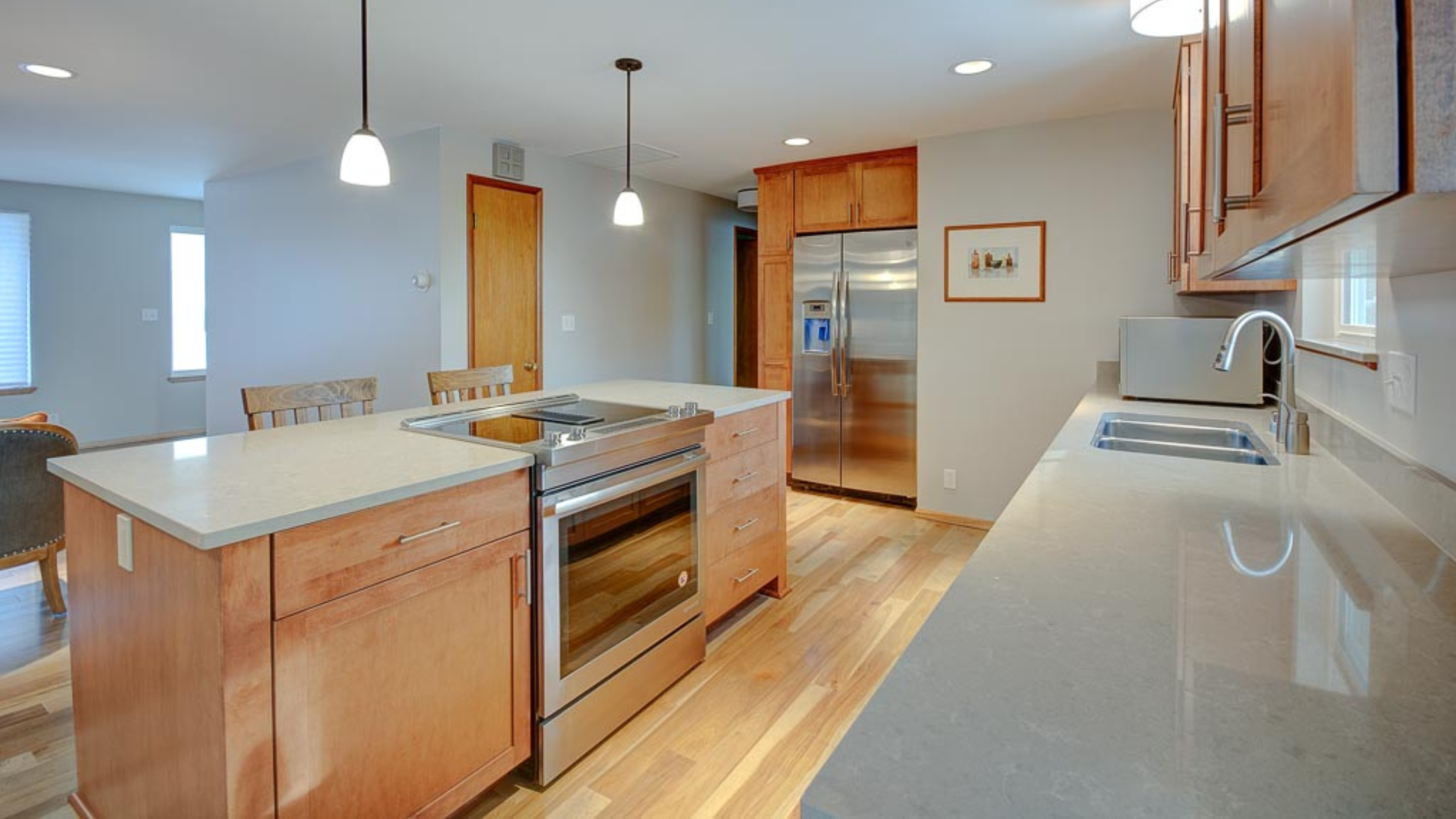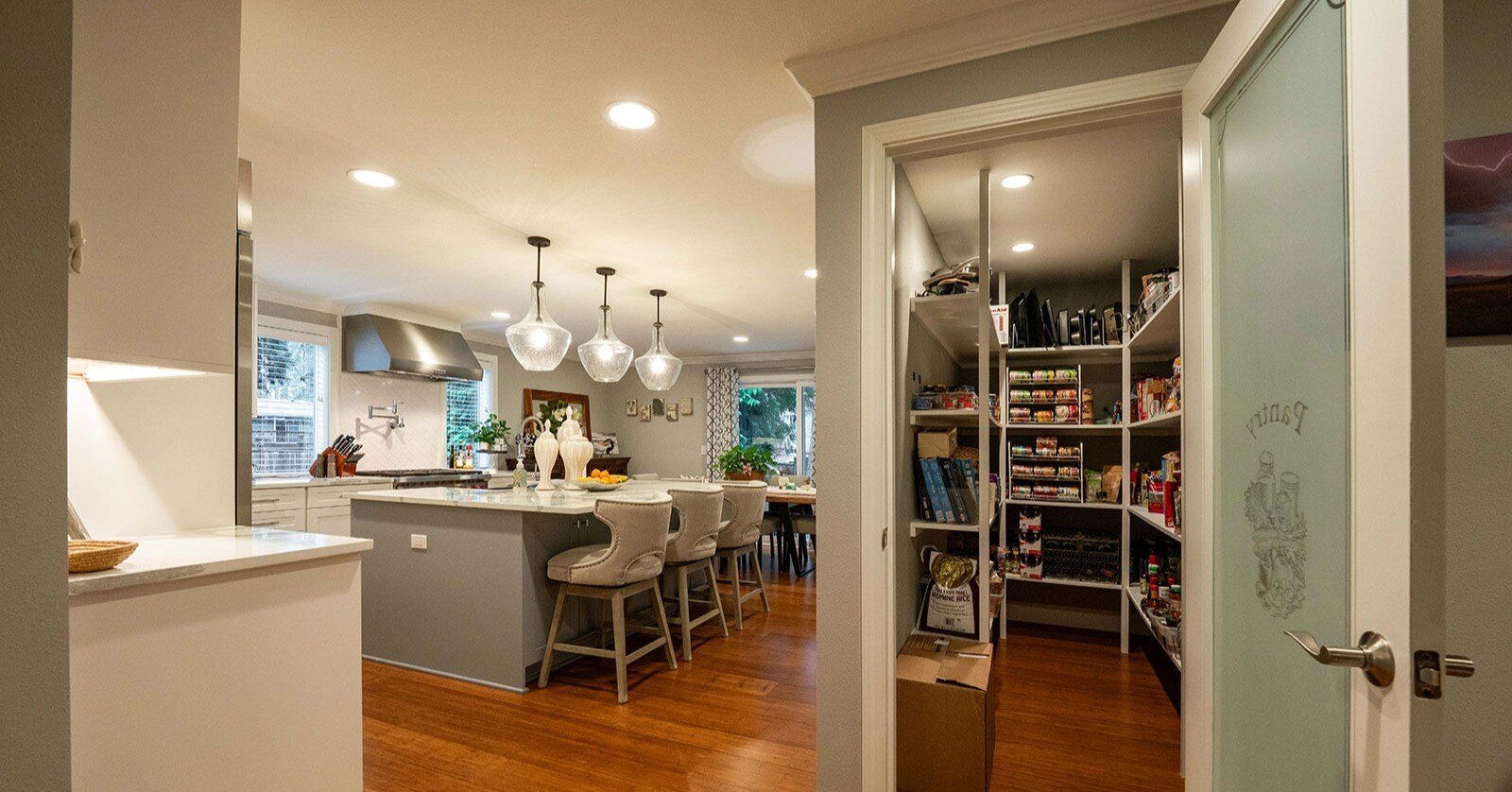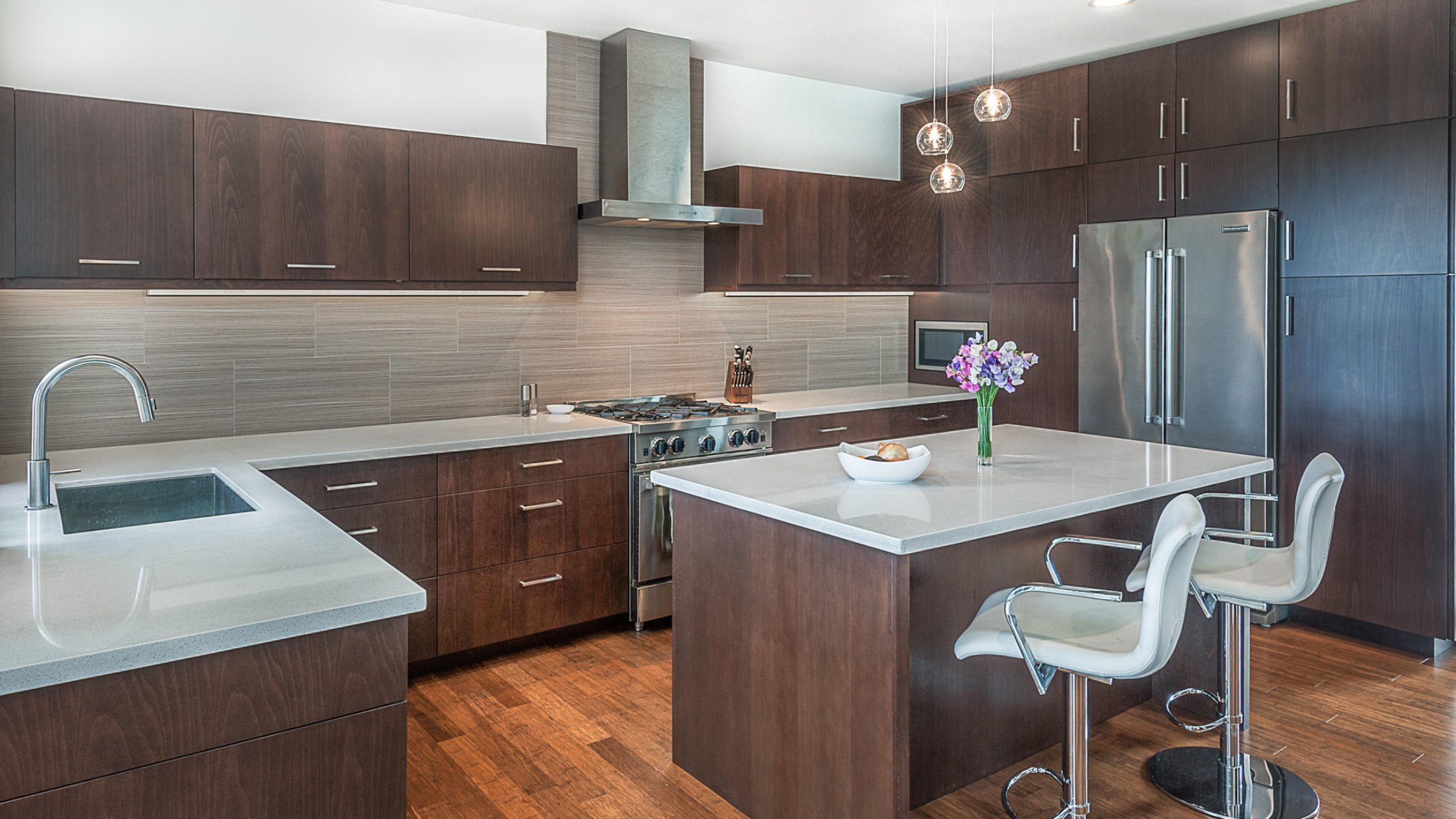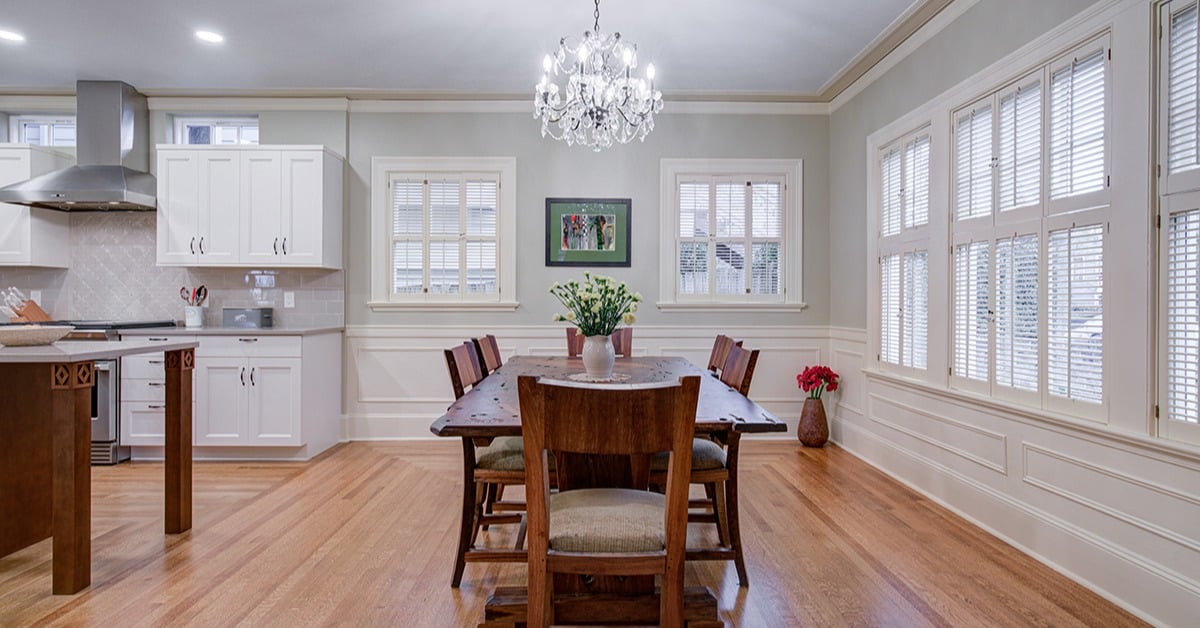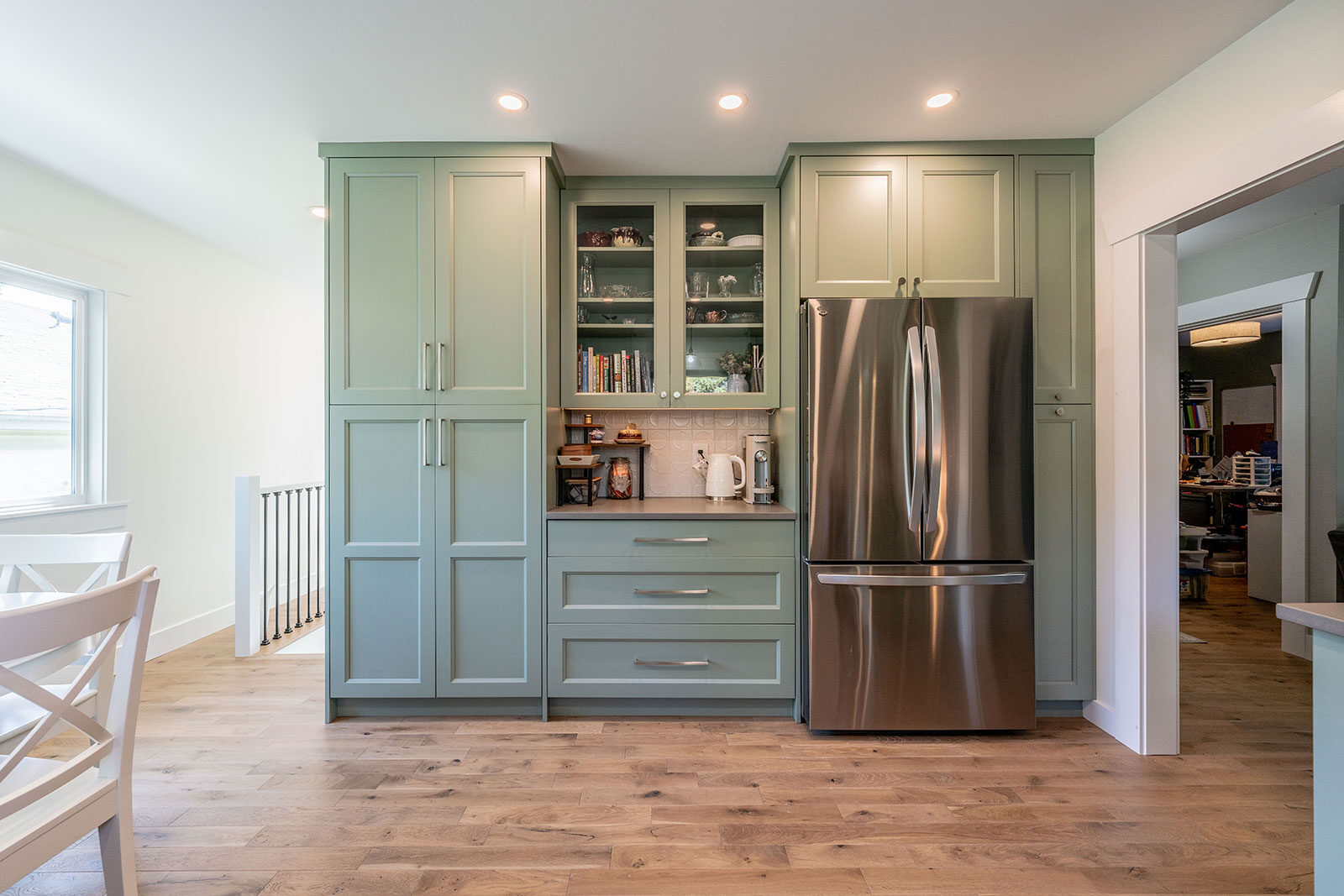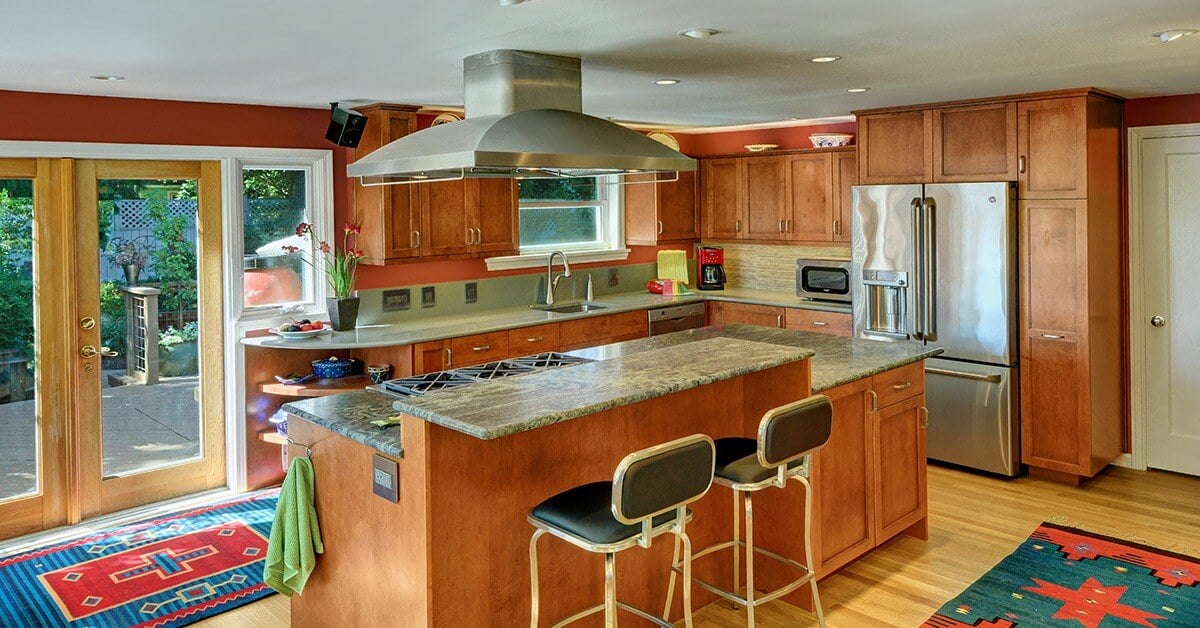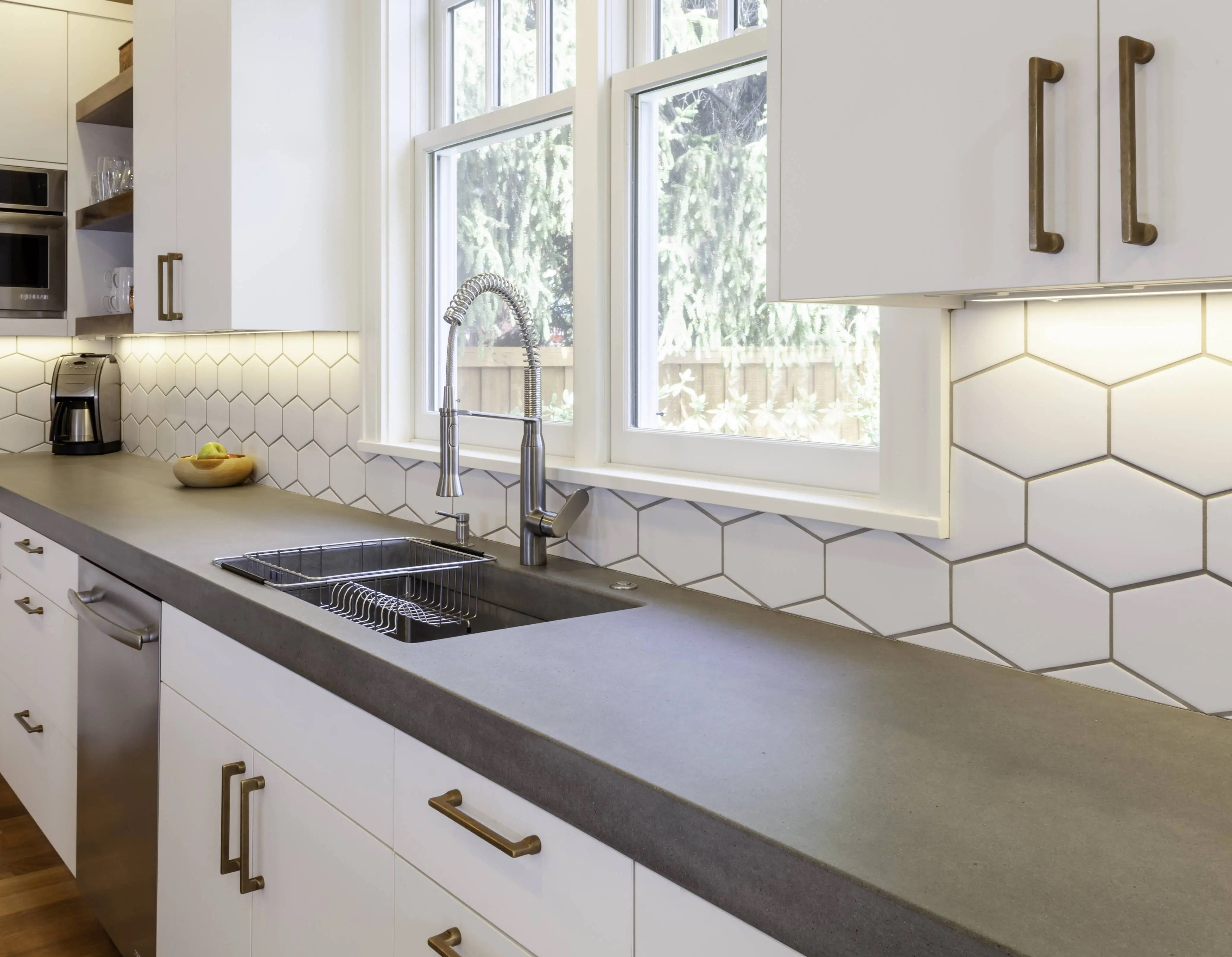When working through selections for a new kitchen remodel, you eventually find yourself asking, “What is the best countertop material to use in the kitchen?” While there are many materials to choose from, all countertop options have pluses and minuses. Therefore, it's important to evaluate selections based on your taste, budget, durability, and required maintenance of the countertop materials. Here are a few common materials for kitchen countertops and the pros and cons of each.
Granite Countertop
Pros: |
Cons: |
| Every slab of granite is unique. The mining process brings out individual large slabs, so no two pieces are exactly alike. There are hundreds of color variations and innumerable veining patterns in granite slabs. People often find imperfections and distinct, unique features to be the most beautiful things about this natural stone. Because granite is a natural material, it holds up well in outdoor spaces and areas with high sun exposure. When properly installed and sealed, granite is mostly stain-resistant. |
While granite is a tough stone, it is possible to crack or chip when something heavy is dropped on it. This presents a challenge as replacing big slabs is expensive and repairing damaged areas leaves you with visible seams. In addition, while granite is stain-resistant when properly sealed, it is a highly absorbent material when not adequately maintained. You should plan to reseal your granite countertops every 3 to 5 years, depending on the type of sealant used. |
Quartz Countertop
Pros: |
Cons: |
|
Quartz is a beautiful mineral that comes in various colors and patterns. There is a lot of variety to choose from, with options in both natural quartz and manufactured quartz. While manufactured quartz countertops are “human-made,” created from crushed quartz bound with resin, One of the most significant benefits of quartz is that it requires minimal maintenance. When properly taken |
One of the main cons of natural quartz, in particular, is that it is a highly porous stone, meaning it will absorb all liquid if it is not properly maintained and sealed. Highly acidic liquids like wine and juices must be cleaned immediately, or you risk permanently damaging the stone. Re-sealing should take place every one or two years. Manufactured quartz, however, is harder to stain and easier to clean. However, it does not tolerate significant direct heat. |
Marble Countertop
Pros: |
Cons: |
|
Marble is another beautiful natural stone option A unique feature While marble is a stunning option, it must be treated |
Marble is only a three on the hardness scale, meaning it is more porous and soft compared to quartz and granite. Soft stones are more likely to easily scratch and chip. Additionally, being made of natural carbonate, marble can be etched with acidic foods like vinegar and lemon juice and easily scratched with abrasive cleaning products and sponges. Marble is also high maintenance because it's recommended to re-seal your marble countertops every three months to one year. Different sealant products have different durations and how often they need to be reapplied. |
Stainless Steel Countertop
Pros: |
Cons: |
|
If your countertop material priority is sanitization, stainless steel may be the right choice for you. It’s not sensitive to acids, chemicals, or heat, making it very Because stainless steel countertops usually come in one piece, installation is relatively easy, and there aren’t any joints to harbor germs. Stainless steel is a complementary material to a more modern/industrial aesthetic and comes in various Stainless steel is one of the most low-maintenance materials you can select as it requires no re-sealing. |
While stainless steel doesn’t require re-sealing, it is easily scratched. Abrasive materials as small as salt can scratch the surface. For minor scratches, a scouring pad may be able to buff them out, but deeper scratches may require professional repair. If you’ve ever had a stainless steel appliance, you know how hard it is to keep them looking clean and streak (or fingerprint) free. While water won’t absorb if left standing, it will leave water stains. Similarly, acidic foods and cleaners are safe to use but don’t leave them sitting too long, or they may stain. |
Butcher Block Countertop
Pros: |
Pros: |
|
Butcher block countertops provide a beautiful, warm Another benefit of the butcher block is its relatively affordable maintenance. If you know how to |
Butcher block countertops can easily harbor bacteria. Think of how you don’t put raw chicken on a wood cutting board, then imagine all of your countertops being like that. Wood is highly susceptible to scratches and knicks from knives, and it’s not heat resistant - hot pans will scorch your countertop! Depending on the wood market at any given time, butcher block may be an expensive material to source and install. For maintenance, butcherblock must be oiled and re-sealed frequently to fight off cracking from moisture, and the sealing process can be toxic. |
Concrete Countertop
Pros: |
Cons: |
|
Concrete may be the most customizable countertop material option of all. You have unique options for coloring, texturizing, and staining that you don’t find Due to its heavy nature, concrete is usually formed With skilled concrete pouring, you can also integrate custom features like built-in drainboards and trivets. |
While concrete is extremely durable, it needs to be re-sealed regularly, and the type of sealant used dictates how often that is. Acrylic sealant needs to be done every one to three years, whereas epoxy sealant typically lasts ten years before it must be reapplied to avoid staining and cracking. The type of sealant you use also dictates the level of heat and scratch resistance. With regard to affordability, while materials are cheap, labor can be more expensive due to its handcrafted, custom nature. If re-sale is in your future, it may also be worth considering that concrete countertops may seem too industrial for future home buyers and detract from sellability. |
Balancing Aesthetic, Care, and Cost
There is no “right answer” to the best material for your kitchen counters. The best countertop material largely depends on your lifestyle, budget, and aesthetics. Before choosing, weigh both the upfront and long-term costs to maintain each material because, as you can see, all of them require some kind of upkeep.
If you’re ready to remodel your kitchen and are looking for more guidance on how to approach your project, we have just the resources you need. Download our eBook, “The Kitchen Renovation Handbook: 10 Steps to Design the Kitchen of Your Dreams.”

